9- Moroccan couscous, its secrets and amazing health benefits
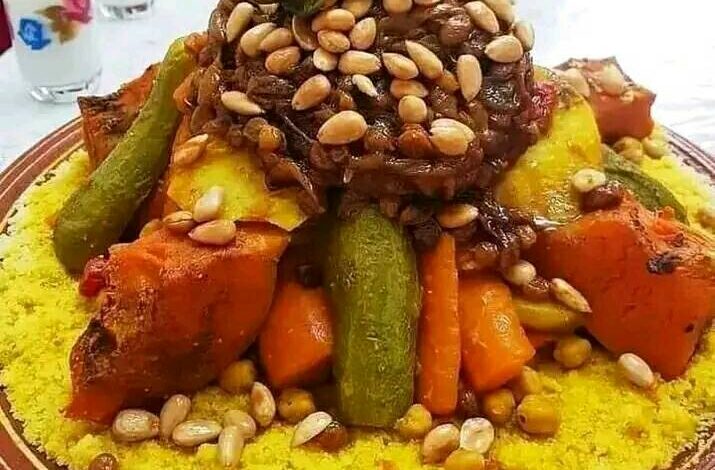
Did you know that Moroccan couscous is considered one of the oldest and most famous traditional dishes in Arab and international cuisine?
Over the ages, couscous has not only been an ordinary meal on the Moroccan table, but it is a symbol of hospitality, ancient traditions, and family cohesion. This dish is distinguished by its unique taste and rich ingredients, which combine delicious taste and amazing health benefits. In this article, we will take you on a tour to explore the secrets of traditional Moroccan couscous cooking and highlight its health benefits that make it an ideal choice for anyone interested in healthy nutrition
Table of Contents
Article idea:
Moroccan couscous is not just a delicious meal; it is a rich historical story in which traditional flavors blend with health benefits. In this article, we will learn about the origin of Moroccan couscous, its ingredients, how to prepare it, and its most important health benefits that make it one of the best food options. We will also review tips for preparing it perfectly and an unforgettable cooking experience.
Read on to discover the world of Moroccan couscous and a unique cooking experience that combines authenticity and health benefits!
What is Moroccan couscous?
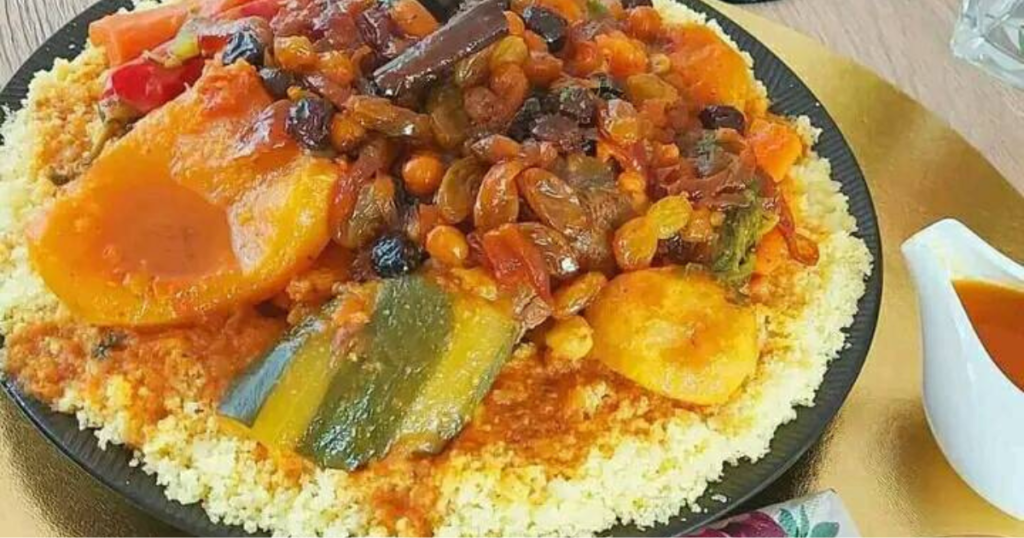
Moroccan couscous is one of the most famous traditional dishes in Moroccan cuisine, reflecting a long history of culture and hospitality. This dish is characterized by its simple and rich ingredients, as it is prepared from steamed semolina grains and served with a variety of vegetables and meat or chicken. Couscous is more than just a meal; it is a symbol of social traditions that bring families together around the dining table.
In addition to its delicious taste, Moroccan couscous has many health benefits. It contains a high percentage of fiber, vitamins, and minerals that improve digestion and boost the body’s immunity. It is also an ideal choice for those following a healthy diet, thanks to its moderate calories and the possibility of preparing it in vegetarian or protein-rich ways.
A historical overview of couscous and its Moroccan origin
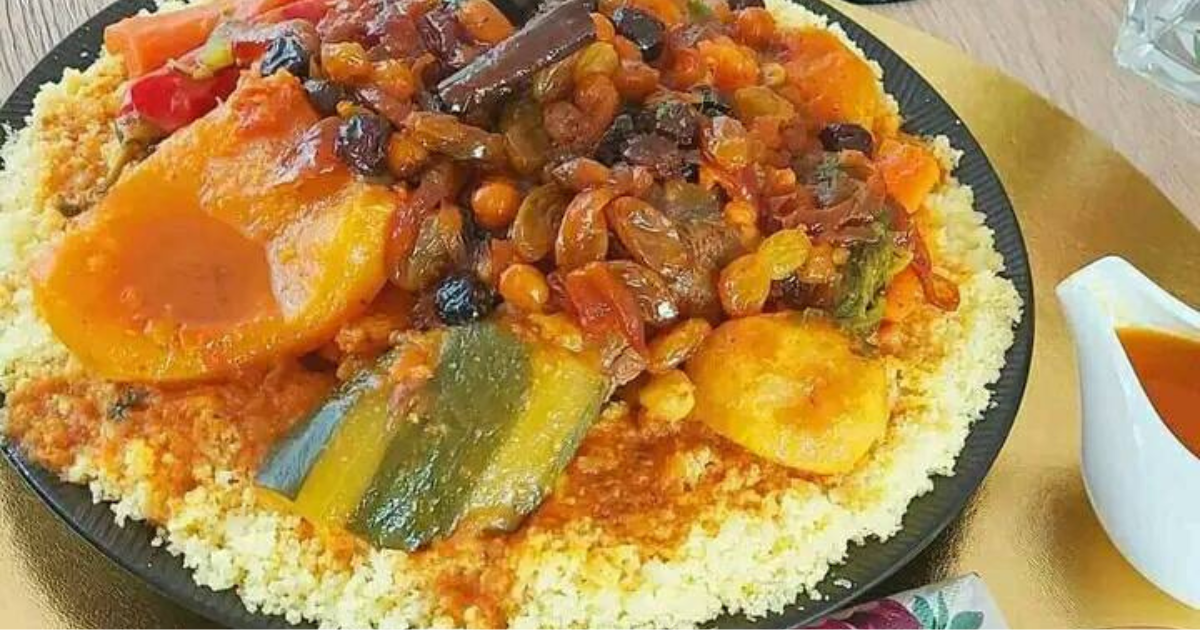 is considered one of the oldest traditional dishes in Morocco, as its roots date back to pre-Islamic times when it was considered the staple food of the Amazigh. Over time, couscous has become an integral part of Moroccan heritage, served at social occasions and celebrations as a symbol of hospitality and unity. Thanks to the global influence of Moroccan cuisine, couscous recipes have spread to become admired in various
is considered one of the oldest traditional dishes in Morocco, as its roots date back to pre-Islamic times when it was considered the staple food of the Amazigh. Over time, couscous has become an integral part of Moroccan heritage, served at social occasions and celebrations as a symbol of hospitality and unity. Thanks to the global influence of Moroccan cuisine, couscous recipes have spread to become admired in various
How did couscous become a symbol of hospitality and ancient traditions?
Couscous has always been associated with generosity and hospitality in Moroccan culture, as serving it to guests is a sign of respect and welcome. Couscous is usually prepared for family gatherings and special occasions, such as weddings and holidays, which enhances its role in strengthening social ties. This traditional dish embodies the spirit of Moroccan society, as people inherit its preparation methods across generations, to remain a symbol of authenticity and ancient traditions.
Health benefits of couscous:
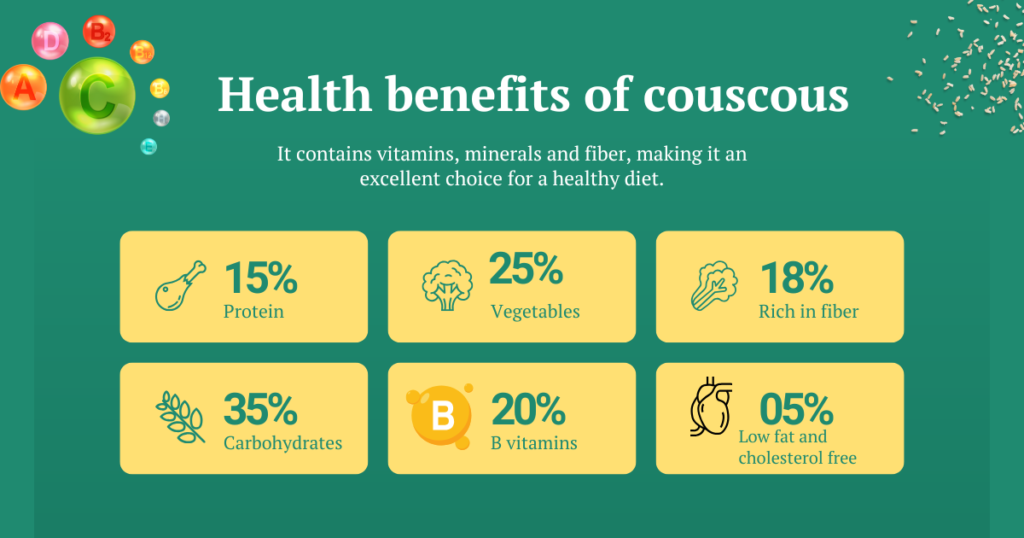
Rich in fiber, Couscous contributes to meeting the body’s daily fiber needs. This improves digestion and gives a feeling of fullness, making it ideal for easy recipes and quick meals.
A good source of protein: Couscous contains about 6 grams of protein per serving, which is a plant-based protein that helps build muscle and support body functions.
B vitamins: such as folate, which is necessary for cell development and red blood cell production.
Essential minerals: It contains magnesium, phosphorus, and selenium, which play an important role in bone health, boosting immunity, and protecting against oxidation. It is also low in fat and cholesterol-free, making it a healthy choice for the heart and people watching their weight or heart health.
The basic nutritional components of couscous
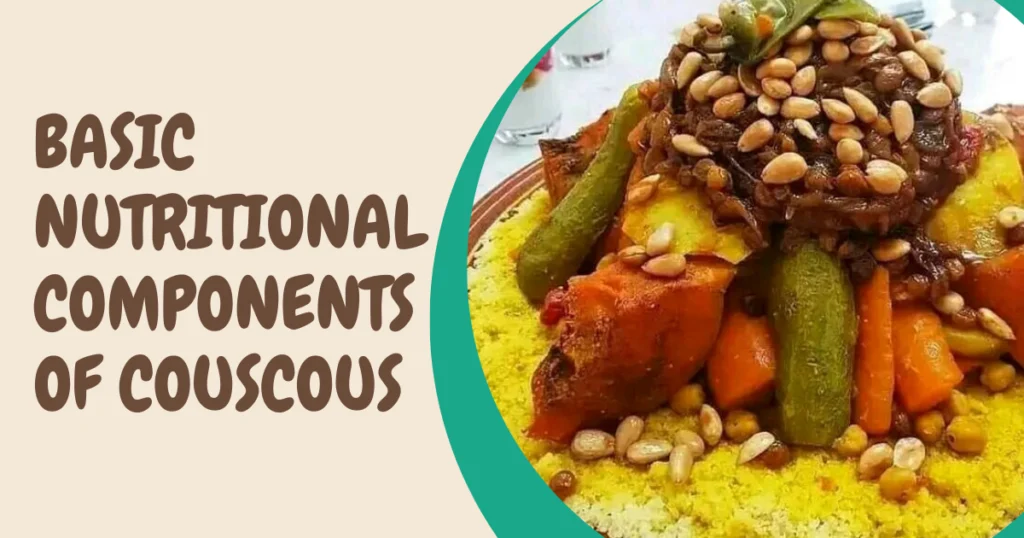
Couscous is characterized by its simple and rich ingredients that combine delicious taste with high nutritional value. It is prepared from semolina grains, which are an excellent source of complex carbohydrates, which give the body long-lasting energy. A mixture of fresh vegetables such as carrots, zucchini, and pumpkin is added to couscous, along with protein from meat or chicken, making it a complete meal full of vitamins and minerals essential for the health of the body
The role of couscous in improving digestion and boosting immunity
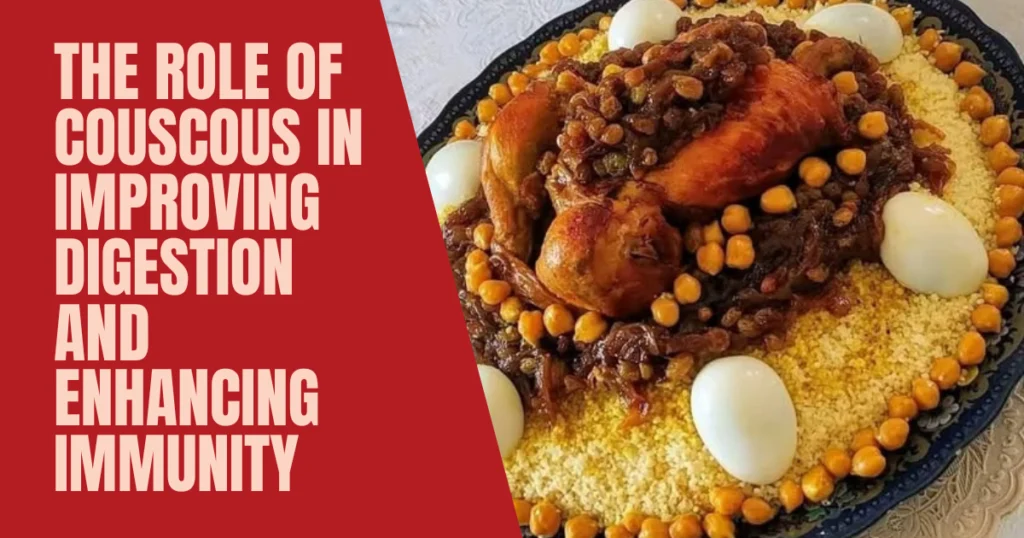
Couscous is one of the ideal foods for improving digestive health and boosting immunity. Thanks to its dietary fiber content from semolina and vegetables, couscous helps facilitate the digestion process and prevent stomach problems such as constipation. Its components, rich in vitamins and minerals, also support the immune system, which enhances the body’s ability to resist diseases and infections.
In conclusion, Moroccan couscous is more than just a traditional dish; it is part of Morocco’s rich heritage and combines great taste with amazing health benefits. With its nutritious ingredients that enhance digestion and strengthen immunity, couscous is an ideal choice for those looking to enjoy a delicious and beneficial meal. If you haven’t tried preparing it yet, we highly recommend that you add it to your table as soon as possible to enjoy its health benefits and unique, incomparable taste.
Continue reading and subscribe to our email to receive new articles. We will continue this article in the coming days by learning how to prepare traditional Moroccan couscous and other exciting things.






